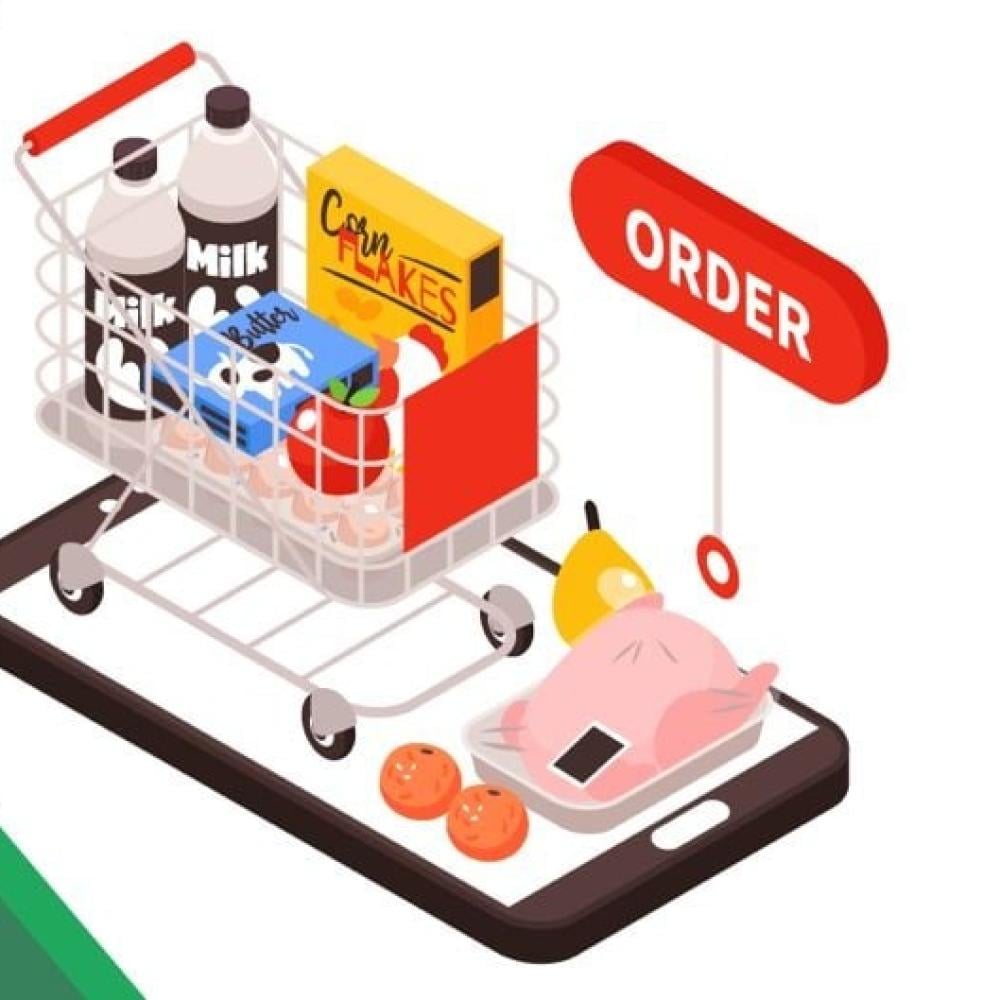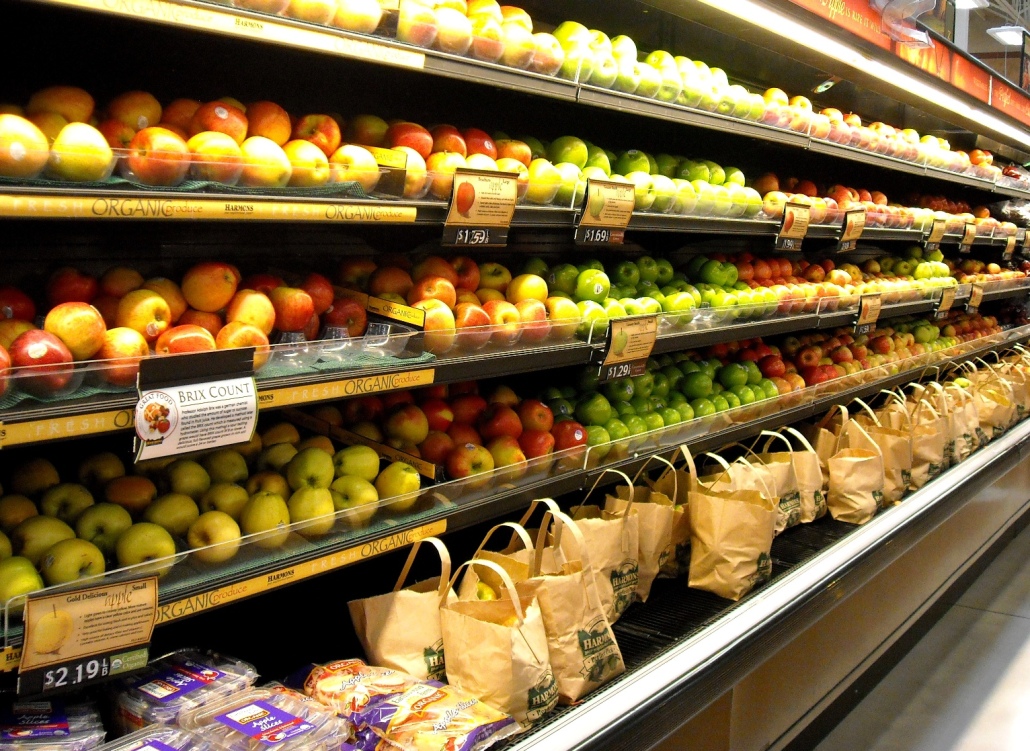 **Welcome to Your Ultimate Guide on Bulk Food Buying**
**Welcome to Your Ultimate Guide on Bulk Food Buying**
Are you an individual looking to save money and make smarter grocery choices? Discover **The Benefits of Buying Food in Bulk: A Guide for Individuals** right here! Bulk buying can be a game-changer in your shopping habits, providing substantial savings and reducing waste.
**Why Choose Bulk Buying?**
Buying food in bulk not only helps your wallet but also contributes to a more sustainable lifestyle. With **Saving Money and Reducing Waste: The Advantages of Bulk Food Purchasing**, you can gain insights into how this buying method supports both personal finances and environmental health.
**How to Buy Food in Bulk: Tips for Smart Shoppers**
Interested in making the most of your bulk shopping experience? Our section on **How to Buy Food in Bulk: Tips for Smart Shoppers** provides essential strategies for navigating bulk food stores efficiently. From understanding portion sizes to selecting the right items, we've got you covered.
**Bulk Buying 101: What You Need to Know Before You Shop**
Before diving into the world of bulk buying, educate yourself with our informative article, **Bulk Buying 101: What You Need to Know Before You Shop**. This resource walks you through everything you need to know to maximize your bulk purchases.
**Understanding the Best Foods to Buy in Bulk**
Not all items are suitable for bulk buying. Check out **From Pantry Staples to Snacks: The Best Foods to Buy in Bulk** to learn which products are not only cost-effective but also enhance your kitchen pantry.
**Is Bulk Buying the Right Choice for You?**
Deciding if bulk buying is the right fit? Our guide on **Is Bulk Buying Right for You? Weighing the Pros and Cons** helps individuals analyze personal needs and lifestyle to determine if going bulk suits them.
**Storage Tips for Bulk Purchases**
Once you've made your bulk purchases, proper storage is key. Explore **How to Store Bulk Food: Tips for Maximizing Freshness and Longevity** to ensure your food remains fresh for longer periods.
**Where to Buy Food in Bulk: Local vs. Online**
Navigating the buying landscape can be tricky. In our article titled **Local vs. Online: Where to Buy Food in Bulk as an Individual**, you’ll find valuable information on the best options suited for your shopping preferences.
**Eco-Friendly Bulk Buying Practices**
For the conscious consumer, **Eco-Friendly Bulk Buying: Sustainable Choices for Conscious Consumers** outlines how bulk purchasing can align with your values and reduce your overall carbon footprint.
**Managing Bulk Purchases for Families**
If you're part of a family, discover **Bulk Buying for Families: How to Manage Large Quantities with Ease** to learn effective techniques for efficiently using large quantities of food without waste.
**Planning Around Bulk Purchases**
Finally, get practical advice with **How to Plan Your Meals Around Bulk Purchases: A Practical Guide for Individuals** which ensures that your meals reflect the great deals you've scored while minimizing spoilage.
Join the trend of savvy shoppers by embracing bulk food purchasing and unlocking its many benefits. Your journey towards smarter shopping starts here!
Introduction
Understanding the Benefits of Buying Food in Bulk
When it comes to managing household expenses, the idea of buying food in bulk becomes increasingly appealing. Imagine walking into a store, filling your cart with items and leaving the place with enough supplies to last you for weeks, all while saving a significant amount of money. Buying in bulk can lead to impressive savings, not just in cents but also in your overall budget. Some of the key benefits of buying food in bulk include:
- Cost-Effectiveness: Purchasing large quantities often comes with a lower price per unit. For example, buying a five-pound bag of rice might cost less than buying several smaller bags individually.
- Reduction of Waste: With bulk buying, consumers can purchase only what they need, helping to prevent food waste, especially if meal planning is involved.
- Convenience: Having staple items stocked up means fewer trips to the grocery store. This is particularly helpful for busy families.
Why Bulk Purchases Matter for Individual Consumers
For individual consumers, the impact of bulk purchases can be substantial. It’s not just about savings; it’s about fostering a mindful approach to shopping. Consider Sarah, a busy professional who decided to try bulk buying. She bought a large container of oats and a gallon of organic honey. Not only did she save money, but this also made breakfast preparation a breeze!But before you dive in, it’s vital to identify your needs and preferences. Here are a few considerations:
- Storage Space: Ensure that you have adequate space to store bulk items.
- Meal Planning: Think ahead about how you can utilize bulk items in your meals over the coming weeks.
By understanding the advantages and planning accordingly, individuals can reap the full benefits of bulk purchasing. It's a straightforward and effective way to save money, minimize waste, and promote sustainable practices in their kitchens.
How to Buy Food in Bulk
Tips for Smart Shoppers
Now that you're familiar with the benefits of buying food in bulk, it's time to delve into how to do it effectively. Smart shopping strategies can make all the difference between a successful bulk buying experience and one fraught with unplanned expenses. Here are some handy tips to help you shop wisely:
- Make a List: Just like planning a meal, compiling a list before you head out can keep your focus aligned with your needs and prevent impulse purchases.
- Choose the Right Time: Visit bulk stores when they have sales or discounts, particularly during holiday seasons when items may be cheaper.
- Examine the Price Per Unit: Always compare prices. Sometimes, seemingly lower-priced items can actually be more expensive per ounce or pound.
Consider Tom, who made a habit of checking weekly promotions. By timing his bulk purchases, he ended up saving quite a bit on essentials like flour and peanut butter.
Strategic Approaches for Maximizing Savings
To really maximize your savings, it’s crucial to adopt a strategic mindset:
- Buy in Seasons: Purchase foods that are in season in larger quantities, as they are usually more affordable and taste better.
- Team Up with Friends or Family: Sharing bulk purchases can be a fantastic way to save without overwhelming your storage. Divide larger packages of items like grains or snacks with a friend to enjoy savings without excess.
- Utilize Loyalty Programs: Look for wholesale stores that offer loyalty programs which can yield discounts on future purchases.
By implementing these strategies, you not only increase your savings but also create an efficient shopping experience. Bulk buying can transform how you manage your food budget, and when approached with foresight, it becomes an empowering aspect of your shopping routine. Enjoy every step, and happy bulk buying!
Preparing for Bulk Buying
What Individuals Need to Know Before Shopping
As you gear up for the exciting adventure of bulk buying, there are a few essential considerations to ensure you make the most of your experience. Preparing well can prevent common hiccups and make your shopping feel less daunting!Here are some key points to keep in mind:
- Assess Your Food Preferences: Know the items you buy frequently. Focus on staples like grains, canned goods, and snacks that align with your eating habits.
- Check Expiration Dates: Always examine expiration dates on bulk items, as you want to buy products you can consume within a reasonable time frame.
- Storage Solutions: Ensure you have adequate storage at home. Consider space for freezers, pantries, or dedicated bins for larger quantities.
For instance, Jane realized she loved making homemade granola. By understanding her consumption pattern, she invested in a bulk order of oats, nuts, and honey, which she used for weeks.
Evaluating the Pros and Cons of Bulk Purchasing
Before diving into bulk buying, it's also wise to weigh the pros and cons. This critical evaluation helps you make informed decisions.Pros:
- Cost Savings: Buying in bulk typically lowers the price per unit, putting extra cash back in your wallet.
- Convenience: Fewer trips to the store mean more time for other activities.
Cons:
- Potential for Waste: If you buy perishable items too quickly, you risk spoilage.
- Upfront Costs: Bulk purchases may require a higher initial expenditure, which can affect cash flow.
By understanding both sides, you can develop a balanced approach to bulk buying. Whether you’re new to the game or a seasoned pro, taking the time to prepare and evaluate your options can significantly enhance your shopping experience. With the right mindset, bulk buying can truly elevate your grocery shopping and budget management!
Making the Most of Bulk Purchases
Saving Money and Reducing Waste
As you get into the rhythm of bulk buying, one of the most satisfying aspects is the impact it has on your budget and the environment. Not only can you save a pretty penny, but you can also contribute to reducing waste. To maximize your savings and minimize waste, keep these tips in mind:
- Plan Your Meals: Creating a meal plan around your bulk purchases ensures you use up ingredients before they spoil. For example, if you buy a large bag of quinoa, plan meals that feature it prominently throughout the week.
- Share with Friends: Combine forces with friends or family members to buy larger quantities of items you both enjoy. This way, you can split items like spices or specialty flours without overloading your pantry.
- Proper Portioning: If you buy large quantities of snacks, consider dividing them into smaller bags. It helps with portion control and makes grabbing snacks on-the-go more convenient.
An example from Lisa, who buys bulk nuts, illustrates this point well. She divides them into snack bags, reducing waste while keeping healthy snacks on hand for her family.
Choosing the Best Foods to Buy in Bulk
Selecting the right foods to purchase in bulk is vital to making the experience successful and enjoyable. Not all items are created equal when it comes to bulk buying. Consider these categories as ideal options:
- Non-Perishables: Staples like pasta, rice, and canned goods are great buys. Their long shelf-life reduces the worry of spoilage.
- Frozen Fruits and Vegetables: Frozen produce can last for months and is perfect for smoothies and cooking.
- Condiments and Oils: These typically have a longer shelf life and are used frequently, making them a smart bulk option.
By focusing on these food types and employing strategies to reduce waste, you can truly make the most of your bulk purchases. It’s about creating a balance between savings and sustainable consumption, ensuring that each bulk buying trip adds value to your kitchen and your life!
Storage and Management of Bulk Food
Tips for Maximizing Freshness and Longevity
Once you’ve made the leap into bulk buying, proper storage is key to ensuring your items remain fresh and usable for as long as possible. Neglecting storage solutions can lead to spoilage and waste, which contradicts the very purpose of buying in bulk.Here are some effective tips to maintain the freshness of your bulk food:
- Use Airtight Containers: Transfer items like flour, grains, and nuts to airtight containers. This prevents exposure to air and moisture, keeping them fresher for longer.
- Label and Date: Always label containers with the purchase date. Knowing how long something has been stored can help you prioritize usage.
- Freeze What You Can: Many items, such as bread or meat, can be frozen. Consider portioning these items so you can easily thaw only what you need.
For instance, Emma realized she could freeze leftovers after a big cook-off with her bulk buy of chicken. This not only preserved the food but also made for easy weeknight dinners!
Managing Large Quantities with Ease for Families
For families, managing large quantities of food can initially seem overwhelming, but with a little organization, it can be a breeze!
- Meal Prep: Preparing meals in advance using bulk ingredients helps in managing portions and minimizing last-minute cooking stress.
- Involve Everyone: Get your family involved in the process. Assign tasks based on preferences, such as snack preparation or lunch packing. This not only makes things easier but also instills valuable skills in children.
- Regular Inventory Checks: Keep tabs on what you have by conducting regular inventory checks of your pantry and freezer. This habit helps you rotate stock and ensures nothing goes to waste.
By implementing these strategies, families can effortlessly manage their bulk food while enjoying the benefits of savings and reduced waste. With fresh foods at your fingertips and responsible practices in place, bulk buying can transform mealtime dynamics and streamline your household routines!
Shopping Options for Buying in Bulk
Local vs. Online Sources
After mastering bulk food storage and management, it’s time to tackle where to find these excellent bulk buying options. Today’s grocery landscape offers both local and online sources, each with its unique advantages.Local Sources:Shopping locally can enhance your shopping experience with hands-on inspection of products. Here’s what to consider:
- Wholesale Clubs: Stores like Costco or Sam’s Club provide a variety of bulk items, from food to household goods—all under one roof. Membership often offers extra savings!
- Farmers' Markets: Buying directly from local farmers can be a fantastic way to purchase bulk, seasonal produce. The freshness often surpasses store-bought options.
Online Sources:On the flip side, online shopping adds convenience, especially when juggling hectic schedules:
- Specialty Online Stores: Websites like Amazon or Thrive Market offer bulk options without the need for physical shopping.
- Local Delivery Services: Some local farms and co-ops deliver fresh and bulk items directly to your doorstep, supporting community efforts and reducing travel time.
When comparing options, Sarah, a busy mom, found that while her wholesale club suited her family’s staples, ordering specialty grains online provided unique ingredients she couldn’t find locally.
Where to Find Sustainable and Eco-Friendly Choices
As consumers become increasingly conscious of their environmental impact, finding sustainable and eco-friendly bulk options is essential. Here are some tips:
- Look for Organic Labels: Many bulk stores offer organic products, which can support eco-farming practices.
- Refill Stations: Some stores now feature bulk refill stations for items like soap, grains, and spices, reducing plastic waste.
- Farm-to-Table Programs: Research local farms that have bulk purchasing options or subscriptions. This not only promotes sustainability but also strengthens local economies.
By exploring both local and online sources, individuals can easily access bulk purchases that are sustainable and eco-friendly, making a positive impact on both their households and the environment. The choices available today cater to diverse needs and preferences, ensuring that bulk buying aligns beautifully with your values!
Is Bulk Buying Right for You?
Individual Considerations and Decision Making
As your exploration of bulk buying progresses, it’s essential to consider if this shopping method truly aligns with your lifestyle and preferences. Bulk buying can be rewarding, but it’s not a one-size-fits-all solution. Here are some personal considerations to weigh:
- Food Consumption Habits: Assess how much food your household typically consumes. If you find yourself often tossing out expired products, bulk might not be for you. Conversely, if you enjoy cooking and have predictable meal patterns, diving into bulk can be beneficial.
- Storage Space: Consider your available space for storing bulk items. An overcrowded pantry or freezer can lead to frustration. If you're in a smaller apartment, you may want to choose only certain items to buy in bulk.
- Budget Flexibility: Bulk buying often requires a higher upfront expense. If your cash flow allows for such items without strain, enjoy the savings!
For instance, Michael and Hannah, a couple with a large family, found that buying staples in bulk not only saved them money but also made meal prep easier, as they always had what they needed on hand.
Weighing the Environmental Impact of Bulk Purchases
While bulk buying can bring individual benefits, it’s also valuable to evaluate its environmental footprint. Here are some aspects to consider:
- Reduced Packaging Waste: Buying in bulk decreases the plastic and cardboard packaging often associated with single-serving products.
- Decreased Carbon Footprint: Fewer trips to the store mean lower emissions—bulk buying can contribute positively to your carbon footprint.
However, it's vital to remain mindful of your choices. For example, while purchasing a massive bag of rice can be eco-friendly, opting for locally-sourced grains ensures you're also supporting sustainable practices.By taking time to reflect on these individual considerations and their environmental impacts, you can make informed decisions that resonate with your lifestyle. Bulk buying can indeed be right for you if approached thoughtfully, ensuring you derived maximum benefits while caring for the planet!
individuals can buy food in bulk, and there are several benefits to doing so, including cost savings, reduced packaging waste, and convenience for stocking up on essential items. Many supermarkets and wholesalers allow customers to buy food in bulk quantities, especially for staple items like rice, grains, oils, canned goods, and frozen foods. Bulk buying is increasingly accessible through stores like Costco, Sam’s Club, and other wholesale clubs that offer memberships for individual shoppers.
Additionally, online platforms also support bulk purchasing, often with options for delivery to your home, which can be particularly useful for those who want to avoid multiple trips to the store. Popular e-commerce sites may provide bulk purchase options and discounts on larger quantities.
While bulk buying can offer savings, it’s helpful to consider:
- Storage: Ensure you have enough space and proper storage for items, especially perishables.
- Usage: Only buy items in bulk that you use frequently to avoid waste.
- Expiration Dates: Check shelf life to ensure you can use the product before it spoils.
Bulk purchases can be particularly beneficial for families, community groups, or anyone looking to save on regularly used products.
Shop Dubai Fridge Store
Confectionery and biscuit products
Personal care and cleaning products
Personal care and cleaning products



